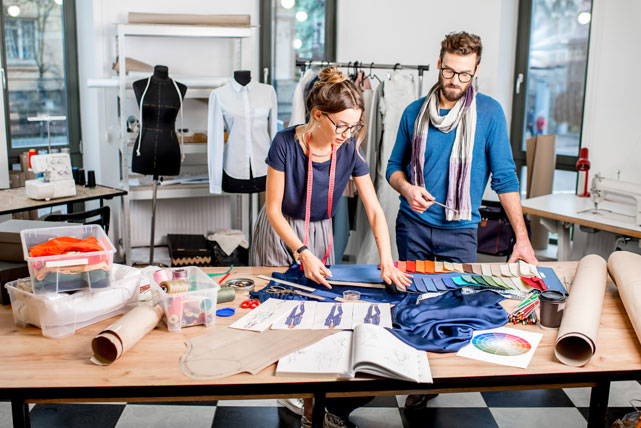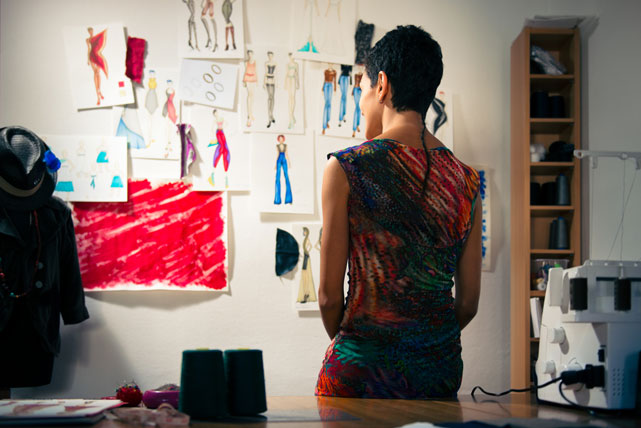Platform Ecology: Creative Collaboration in the Field of Tension between Virtual and Concrete Spaces in the Case of Fashion Design
Research department: Economy and Civil Society
IRS Research Topic: Shared Knowledge - Locally and Over Distance Research on Innovation Processes
Project Leader within IRS: Prof. Dr. Oliver Ibert
Project Team: Alica Repenning Prof. Dr. Suntje Schmidt Dr. Anna Oechslen
Duration: 01/2019 - 12/2021
The lead project focalized digital online platforms as well as their relevance for design processes in the fashion industry. Thus, it addressed the question, to what extent creative collaboration can be digitalized. More and more relations of exchange and interaction – professional as well as private – are mediated by digital platforms, which in turn are diversifying and specializing. All platforms have in common that they enact specific interfaces between the "concrete" and the "virtual" world, at which human actions are translated into data and vice versa. Furthermore, each platform business model is grounded in expectations about social action which are reinforced in a "performative" way by platform-based intermediation. In economic geography debates about the "platform economy", the tension between, on the one hand, platforms’ potential to foster openness, participation and collaboration over distance, and, on the other hand, the pronounced tendency of platform companies to cluster and form monopolies, is emphasized.
The lead project analysed how different specialized digital platforms are used in design processes, and which spatial patters and divisions of labour in creative work emerge as a consequence. It is grounded in the idea of ‘platform ecologies’. This concept denotes platforms’ embeddedness in a system of virtual and concrete relationships of interaction which is specific to a social context – for instance an economic sector. By focussing creative processes such as the design of fashion products, the project investigated the specific contributions of various types of platforms – e.g. for crowdfunding/-sourcing, design collaboration or production services – in different phases of creative and aesthetic value creation. Many qualities relevant to a product’s value appeal in fashion, such as materials’ touch and feel as well as standards of workmanship, are difficult to transmit digitally. In addition, fashion can draw on a long-standing system of creative collaboration over distance based on formats of temporary co-presence. The advance of digital platforms into a formerly more analogue industry like fashion bears the potential to fundamentally change spatial arrangements of creativity-based value creation, to the benefit or at the expense of established creative centres.
The research was organized around two sets of research questions:
• Which platforms do exist and how can they be characterized in terms of function, business model, interface design, users and locational patterns? Which (new) spatial forms of organizations and divisions of labour do they enact?
• How are platforms used in design processes, what are their respective contributions and how do digitally mediated and non-digital practices relate to each other? When do actors prefer virtual exchange and when do they favour co-presence?
Empirically the project implemented a combination of qualitative methods such as online research, qualitative expert and participant interviews as well as ethnographic elements.
Photos: rh2010/stock.adobe.com; bonninturina/stock.adobe.com; .shock/stock.adobe.com; diego cervo/stock.adobe.com





